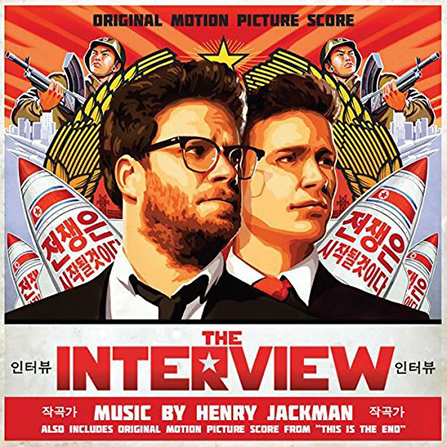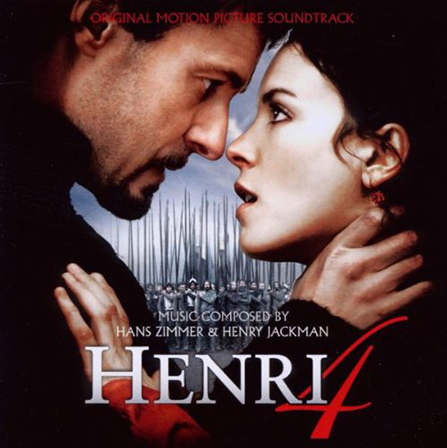Interview - The Birth of a Nation : Let's talk with Henry Jackman
By Mulder, Los Angeles, 13 october 2016
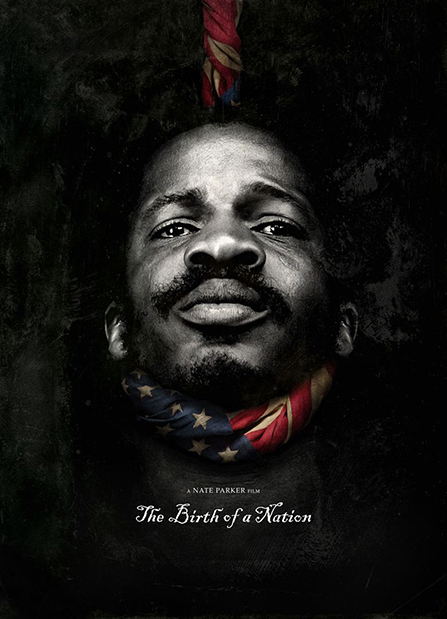
Q: You are since a long time my favorite film score composer. You have such a remarkable discography Monster vs Aliens (2009), Kick-Ass (2010), X-Men First Class (2011), Wreck-It Ralph (2012), Kick-Ass 2 (2013), Captain Phillips (2013), Captain American The Winder Soldier (2014), Big Hero 6 (2014), Kingsman the secret service (2015), The 5th Wave (2016), Captain America Civil war (2016). How do you find such a powerful creativity ?
Henry Jackman : Really ingest the thing you're working on. Read it. Watch it. Understand the characters, the narrative, the structure, and all the rest of it. So before you start writing, you've really soaked in what is needed musically and why you're writing music for it in the first place. So all the ideas you come up with are very honed and focused on the task at hand. Of course, there's a certain amount of exploration and experimentation, and you throw a certain amount of spaghetti at the walls. Some of it sticks, and some of it doesn't. That's just a natural part of the process. In a funny way, finding the theme and the tonality of a movie before you actually write all the cues is, in a way, the most fun part. Because you're creating a little musical world that's unique to each project. I've been lucky with quite an extensive musical background that incorporates all sorts of different stuff, whether it be a completely strict classical education, plus work in the record industry, and doing a lot of electronic music ... I've got quite a few toys in the box to play with when it comes to coming up with a unique sound, at least I've got quite a lot to play with from my musical past.
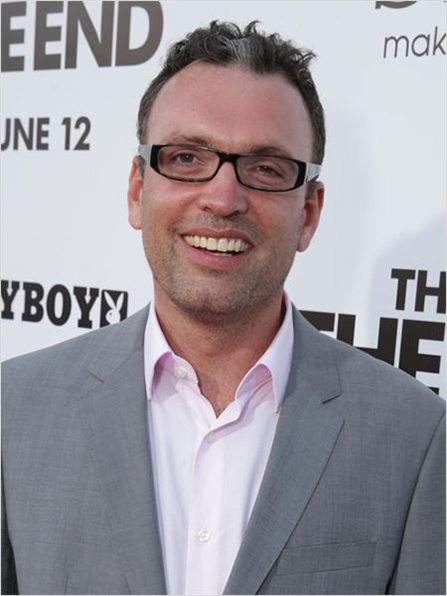
Q: Birth of a Nation is your first collaborating with director Nate Parker. How did you work with him to find the perfect score to illustrate the film?
Henry Jackman : That was a fantastic experience. I'd read the script. I'd seen the first cut of the film. Actually, before I wrote the theme, we had extensive discussions. Some of them were actually about logistics because when I first met Nate, he had no budget, no release date, no studio. It was all an extremely touch and go situation as to whether the film would actually get made properly. One of my first considerations was that, given that we have no budget of any kind, perhaps we have to do restricted score, maybe solo cello, solo choir, solo piano, that kind of a thing. You can still be really creative, it's just that we won't be able to have a full symphony orchestra because we can't pay for it. To his great credit, he said, "don't think like that, let's think really ambitiously. Right now we don't have the budget. Right now we don't have a studio backing us or anything. But what do you think the movie ... In an ideal world, what sort of score would it have?" Once I watched the movie, it had so many different threads to it. I said to him, "well, in an ideal world, there would be a Nat Turner theme, there would be a symphony orchestra, there would be a gospel choir, maybe even children's choir, solo singers would be fantastic. I really think the human voice could play a large part. A lot of that was coming from Nate. He had strong opinions on how much we could use singing. Because very often, it's quite tricky to use a lot of singing in score, because it can distract from the dialogue. But we found a way to make it work. We used African percussion, African woodwinds, a children's choir, female solo singers, male solo singers, and a symphony orchestra. Somehow or other, with a combination of getting favors because it was a passion project with Nate doing a fantastic job of raising the money to get it done, we ended up with the score that we dreamed of.
Q: You have successfully encapsulated the musical essence of oppression through melodies that reflect the ubiquitous pain from the era in which the film resides. What was for you the most difficult track to create and why ?
Henry Jackman : That's an interesting question. One of the things we wanted to avoid, interestingly enough, not that there's anything wrong with it, is that there's a fantastic tradition of spirituals and songs in African-American tradition and the gospel choir. It's such a known musical genre. Actually, we wanted to avoid the potential African-American cliché of just filling the whole thing with rearrangements of gospel music. So finding a way to use the voices and keeping it universal so that it doesn't feel like some arrangement of a known spiritual song was an interesting journey. Camille was the solo singer who had this amazing voice that didn't necessarily fit into any known category. She didn't sound classical. She didn't sound specifically African-American. She didn't sound like she came from a gospel tradition. She didn't sound trained. She didn't sound academic. Similarly, when I did use the gospel choir, what was great was the tonality and the texture of gospel choir sound, which is different to the classical choir. They weren't singing gospel music. They were singing what I'd composed for the movie, which was not quite in the same tonality as traditional gospel. I think, rallying all those vocal forces, the female singer, children's choir, a gospel choir, without them falling into the stereotype to which those types of vocal forces are traditionally associated, needed quite an original approach. Once we found it, it was great. And felt universal. And felt unique. I think that was probably one of the tricky aspects of it.
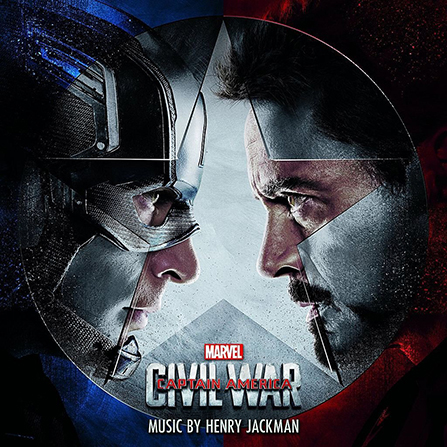
Q: How do you process in a general way to write a score ?
Henry Jackman : To be honest, apart from panicking that we were never going to have the money to actually execute any of it, because obviously I do all the demo's using samples, it was a very similar process to any other film. That was the thing that Nate and I promised ourselves. Let's not worry about the fact that right now there's no budget. Let's just go ahead, and I'll do the score for this movie as if it's any other. It would be like all the other movies I've worked on. I would write music, meet up with Nate once a week. We'd review the music, discuss the music, see what I could be improved, what's working, what isn't working. The process of writing and collaborating with Nate, despite the initial very restricted circumstances, ended up being very similar to the process I went through, say, with the Russo's Captain America. Some of our meetings were sort of three, four, five hours long, because we'd be discussing everything from the composition itself, the arrangement, the instrumentation. Then we'd have huge, wide-ranging conversations about racism and the history of America, and the situation of the slaves in Virginia. It was a fantastic collaboration.
Q: Recently we have made an interview with Matthew Margeson. Like you, he had residency at “Remote.” He started doing middle of the night arrangements on some of the films you have worked on. Can you talk a little about this long and magical collaboration? How do you share the work on your different collaboration?
Henry Jackman : I'm actually working with Matt on an upcoming film which is The second Kingsman. We're doing that together. So the credit is music by Henry Jackman and Matt Margeson. It was only yesterday we were Skyping with the director and sort of dueting on the piano and coming up with ideas and themes. That movie is a shared credit.
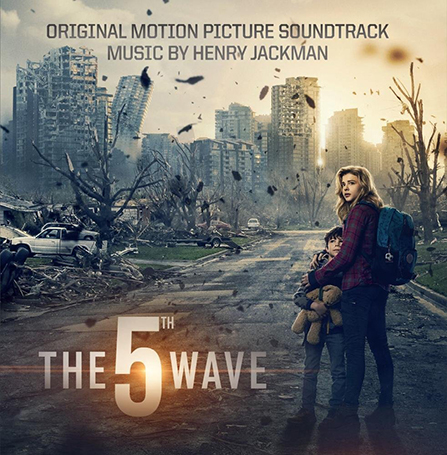
Q: You have scored films from every genre. You have worked several times on adaptation movies from Comics as Kick-Ass, X-Men First Class, Kick ass 2. What do you like so much in these movies and do you read comics books ?
Henry: It's interesting. I'm actually not a stereotypically comic book guy. When I was a kid, I think the closest I got to comic books was probably Asterix books, because I'm European, and a few English ones. The classic American, you know, Spiderman, Batman, Superman, Iron Man, I didn't spend my childhood and teenage years reading that. Interestingly, from a film composer point of view, one of the things that I appreciate about superhero movies is from a completely different angle than the comic book fan angle. Which is that, especially now in 2016, there's something of a vogue of avoiding symphonic ally grand music and orchestral music that has a real classical heritage. Perhaps because lot of films are very contemporary, and that sort of approach is not appropriate. The great thing about superhero movies – its the very nature of the superhero ... A superhero is a sort of version of a God in a way. It's a bit like the Greek gods or the Roman gods, like Zeus or Poseidon and all these ancient figures... You’ve got these inflated characters who are above and beyond regular human beings who have super powers. They're human enough for us to relate to them, but they're like a sort of higher version of ourselves. What that means is some of this more grand, symphonic music that comes from a lineage through Richard Strauss and Wagner, the kind of grand Austrian-Germanic composers of the 19th century, you can actually some of that classical heritage in those sorts of films. And instead of people complaining or directors going, "no, no, no, we don't want that. We want something way more modern. We want pulses and electronic and so on. Superhero movies are actually a really nice oasis where if you do have a musical background, where you have significant classical and symphonic urges, then you can actually use them to great effect in superhero movies, because it works. In a way that wouldn't work on a movie like Syriana. If you were working on a more contemporary film that deals with corruption and politics, then you perhaps don't want a grand symphonic score that sounds like you've been listening to Richard Strauss. At the end of Captain America 3, the final fight, it's very operatic. So you get to use these sort of symphonic, grandiose compositional ideas that, perhaps, don't find a home in other types of films.
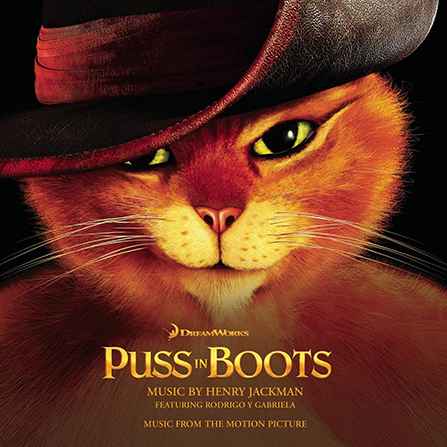
Q: What can you say about your collaborations at the beginning of your career as a film composer of Hans Zimmer?
Henry Jackman : That it was the best education you could imagine. I'm not saying anything disrespectful about academic education. I had an incredibly formal academic education myself. But when you want to actually be good at a certain craft, whether it's being a sculptor or painter or film composer, there's just no replacement for being able to watch a master at work. So the fact that I was lucky enough to be around Mr. Zimmer when he was putting his scores together, you just couldn't think of a better education. It wasn’t just music, but the whole process. The process of meeting and discussing with directors. Talking to producers. The logistics. There was so much going on, and so much to learn. Doing a film score is such a giant endeavor, that it's possible to imagine a number of talented people who are perfectly good at music that couldn’t work on a film score because they would sink under the weight of the whole endeavor. To have had the experience of watching it happen at the highest level was about the best education you can possibly get in film music.
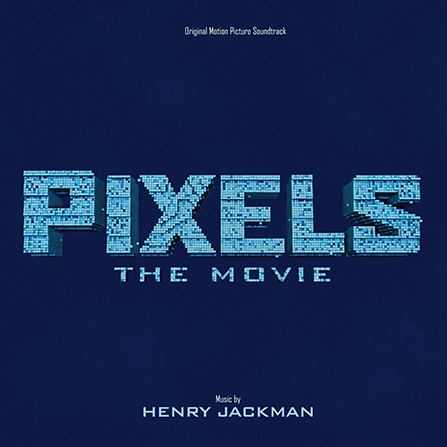
Q: You have worked with so great directors such as Matthew Vaughn (several times), Paul Greengrass, Anthony and Joe Russo. What is for you the best memory working with a director on a movie ?
Henry Jackman : I think maybe one of the most moving moments was, like I said, when I first met Nate Parker. He had a script and really not much else. It was debatable whether it was ever going to happen, and certainly whether it would ever be picked up. It was debatable whether we'd be able to do the score we were hoping to do. There was a moment at the stage where they were finishing recording the cue Onto Jerusalem, where we'd pretty much got everything we need. I said, "Nate, instead of being in the control room, let's go stand outside, and just to play it." Sometimes when you record a cue, you divide it up into bits and record different sections. So I go on the top, said, "listen guys, we're just going to play this whole piece," it's about six minutes long, "one more time from top to tail, with no stopping, like it's a live performance, in case we get some extra magic." And I said to Nate, "look, come on, let's get out of the control room, let's go into the hall with the orchestra and just treat it like it's a performance." He stood there, and the orchestra played, and he could not stop himself from weeping. Because it was a sort of realization. Here we were, at Fox Studios, with the best orchestra in the whole of the America, everything done at the highest level, with this beautiful performance, for a score. It was overwhelming to him. There were so many ways it could never have got to this, and yet, there he was, and the score had been written, and we had the best orchestra. He loved the music. It was just a moment where everything that he'd hoped for was all happening right in front of him.
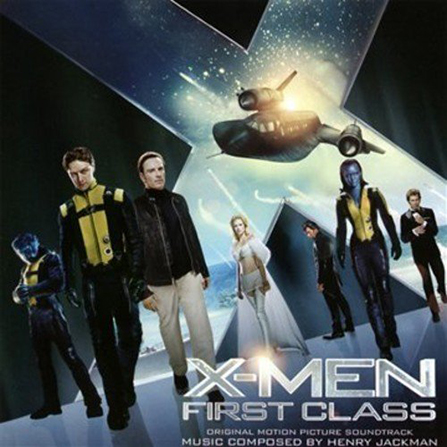
Q: We wait so impatiently to discover the new Ed Zwick movie, Jack Reacher Never Go Back. What can you say about your work with this director and what can we expect with this new score?
Henry Jackman : The first thing to say is that I was super excited to get involved because, to my mind, Ed Zwick is a very distinguished director, with a known track record of proper film making. He's not just a director. He's a filmmaker. He's got legitimate dramatic credentials. He's a writer. He's a very intelligent, creative, and experienced person. What was interesting about him doing Jack Reacher is, as we know, Jack Reacher is a sequel and the character of Jack Reacher, we expect there to be an action film, a thriller. It's going to have tension. It's going to have espionage. There's a musical ... There's a certain amount of genre, as it were, that applies to that, that means that the music will have that visceral energy to it. But what's great about Ed Zwick is, in addition to that, he wove into the film a whole emotional thread, which has all sorts of consequences. It enriches the film, just as a film, just to watch the film. It means the performances of the actors ... Tom Cruise who is, everyone knows, from Top Gun to Mission Impossible, as having made one of the biggest contributions to entertaining action films probably of any actor in Hollywood. People forget, it's also the same guy who did Born on 4th of July, Jerry MacGuire, Magnolia. The guy has some serious dramatic chops. And what's clever about what Ed Zwick did ... Sure, it's Jack Reacher, and there's action, and there's car chases, and tension, and there's an unfurling story of corruption and all the rest of it. And, at the same time, there's a very moving, emotional thread to it. I think that really enriches the film. It also has an impact on the music. As well as having all the action and tension music, and there's a whole Afghan element to the music, there's also this emotional beat to the film. Which meant I got to write some poetic music that I was not necessarily expecting in a Jack Reacher film. I guess, when you hire people like Ed Zwick, as the studio did, that's what you get. You get this extra depth. It comes through in the acting, and it's also an invitation to the composer to reach for a more intimate thematic thread musically into the film, as well.
Q: Big Hero 6 is one of my favorite Walt Disney movies. Do you have a favorite memory about working on the film that you could share?
Henry Jackman : I think it might be, it took me, because it's an animated film where, culturally speaking and from a director point of view, people are not scared of a proper theme. It's one of those movies that really did need a fully worked theme in a way that isn't applicable to things like Captain Phillips. I think the satisfaction ... I've worked for a while, just on the piano, over and over, until I whittled down the theme into what I felt was its sort of perfect state. I think having spent so long on that, without doing a grand mock-up in the computer, I really just worked on the piano, when I first played it to the director and producer, I was a little bit nervous because I really have spent a long time. And I really do believe that this is the perfect tune for Big Hero 6. So when I first played it on the piano at the first meeting, and all of them instantly believing that it was the way to go, was enormously satisfying.
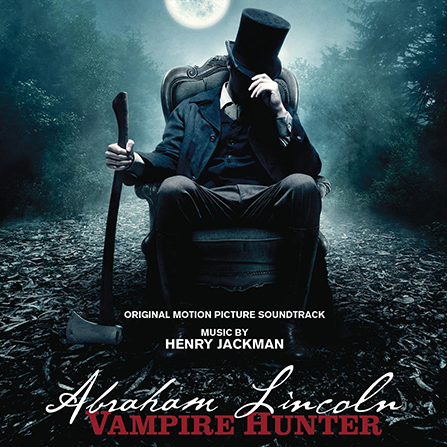
Q: That's awesome. All right. Cool. What are the main differences for you, if any, working on a game, such as Just Cause 3 or Uncharted 4, and on actual movies, like Hollywood movies?
Henry Jackman : It's interesting. The difference between movies and video games has narrowed massively. Funny enough, my first ever paid job, age 17, so what would that be, 1991, was to do the music for MC Kids on a Commodore 64. That involved me typing in lines of code to produce something that kind of went, "do do dee dee, do do dee dee, do do dee dee." It was extremely primitive. Now, look where we are. When you look at video games now, there's a budget. They hire known composers. You can go and record orchestra. It's not dissimilar in terms of the approach to doing music to video games. We're a long way from bleeps and little tunes, because the technology is now so advanced that it's quite similar, in that respect. The gap between film and video games has narrowed enormously in the last 20, 30 years. The main thing that is fundamentally different is, by necessity, when you work on a film, everything is to picture. When you watch a film, it's the same film every time you watch it. When you write music for a video game, obviously in the nature of a video game, it's not the same sequence of events. Because it's different technology, and people are interacting with the game. It's never the same result twice. So you're not exactly writing to picture. So some of the very specific things that you do in film music, hitting certain cuts, and dramatically pushing or pulling, is very much what you do in film. You can't do that in quite the same way in video games, because very often, it'll be an overall piece for a scene. The technology now has got good enough that you kind of write in a modular way, and you have a more intense version, a less intense version. Technology is clever enough to kind of cross-fade into different versions of the same piece. But you're not writing ... There are some parts of video game that actually are to picture, the cinematics. The main game play is not quite the same as scoring, because it's a little more general.
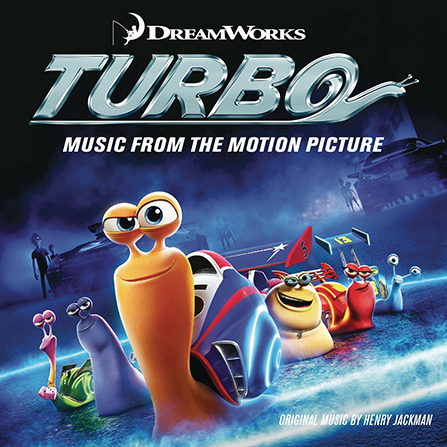
Q: In terms of the process of composing music for film, is there a specific element of that process that you really, absolutely love?
Henry Jackman : I think the collaboration is the best thing about it. Because even if you are the most creative person imaginable ... Because people often ask me, "how do you come up with so many different things for so many different movies?" As if I'm singlehandedly responsible for all the ideas. But of course, what's happening is, every time you do a movie, you're joining a team. A team. Someone has written a story. Someone has shot a film. Someone is directing it. Someone has made the look. Every time you join this creative team, you're joining a creative aesthetic, that has already started to be created. It has a look. It has a feel. One of the reasons one is able to do so many different things is because it's like visiting 15 different countries. You go to Japan, it's completely different to Sub-Saharan Africa. And if you go to Antarctica, it's completely different to Japan. And you sort of fall in line ... You'll just behave different in Antarctica than you will Chile. I think that if you only ever wrote stand alone music and you weren't collaborating, even if you're incredibly creative and you constantly kept yourself stimulated with listening to different things and exposing yourself to different material, I still don't think you would end up being as diverse as when you collaborate. Because by working on ... If you work on a film that's set in 19th century Virginia, like Birth of a Nation, and before that you're working on Big Hero 6, which is Japanese influenced and slightly techy, but heartfelt Disney animation, and then, I don't know ... Think of any ... These are such different worlds. And there are other people responsible for starting to create that world. You're always going to end up, I think, more diverse and more creative, because you're constantly rubbing up against and bumping into new ideas and different visions.
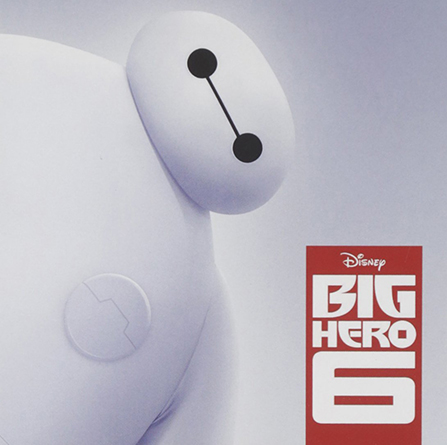
Q: What can you say about your collaborating with the director on Skull Island? We have discovered during the Comic Con, obviously, the first trailer, and it seems to be one of the most awaited movies next year.
Henry Jackman : I can't say much about it, but what's fantastic about Legendary having hired him to do the Kong film is this Kong film has everything you'd expect. You know, the heritage and the history of such a famous Hollywood animal. But he's bringing something really original to it, because it's set in the 70s. So all I would say is imagine mixing together King Kong with a bit of Apocalypse Now and a little bit of Lord of the Flies, and kind of mixing it all together.
Q: What kind of advice, this is the last question, will you give to an aspiring film composer or somebody who wants to go into musical composition for film?
Henry Jackman : Funny enough, I'm sure people who ask that question expect to get an answer to do with composing itself and musicianship and orchestration and so on and so forth. But funny enough, I'd say that's a given. There's no point even trying to do film music unless you have a certain amount of talent writing music. That's obviously a known, and that's a given. The best advice I would give are the sort of things that you wouldn't think of. Which are not actually to do with music. I would say, along with all the obvious things you would need to be a film composer, the ones you might not be thinking about are unbelievable qualities of endurance and perseverance. And secondly, I would say the main difference between composers who collaborate well with directors and end up being useful to the process, and being able to compose music that really enhances the film, that extra quality isn't always musical. It's actually back to that thing that I was talking about. It's like literary criticism. Because you can write fantastic music that just isn't helping the film, because you haven't really understood why you're writing the music and what it's for. One of the under-represented requirements to be a film composer is actually a type of analysis. Meaning when you're reading a script or when you're seeing the cut for the first time, before you're even thinking about music, you've got to be thinking of what the film needs and what it's about. And thematically, what's going on. Which is almost an analytical sort of literary criticism type skill. For anyone out there, I'm sure people who want to do film music they're knee deep in their musical studies, but they shouldn't rule out an English literature course, as well. If you are in an environment where you are accustomed to analyzing plays, analyzing novels, analyzing stories, then that's the missing ingredient. Because when you bring your music to the story, you've actually got a mechanical understanding of how to rip apart a dramatic work to understand what is required for it.
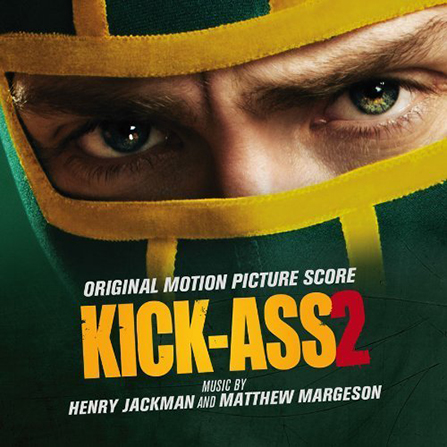
We sincerely thank Henry Jackman for answering our questions
An huge thanks to Andrew P. Alderete, this interview is for me as a dream that came true


